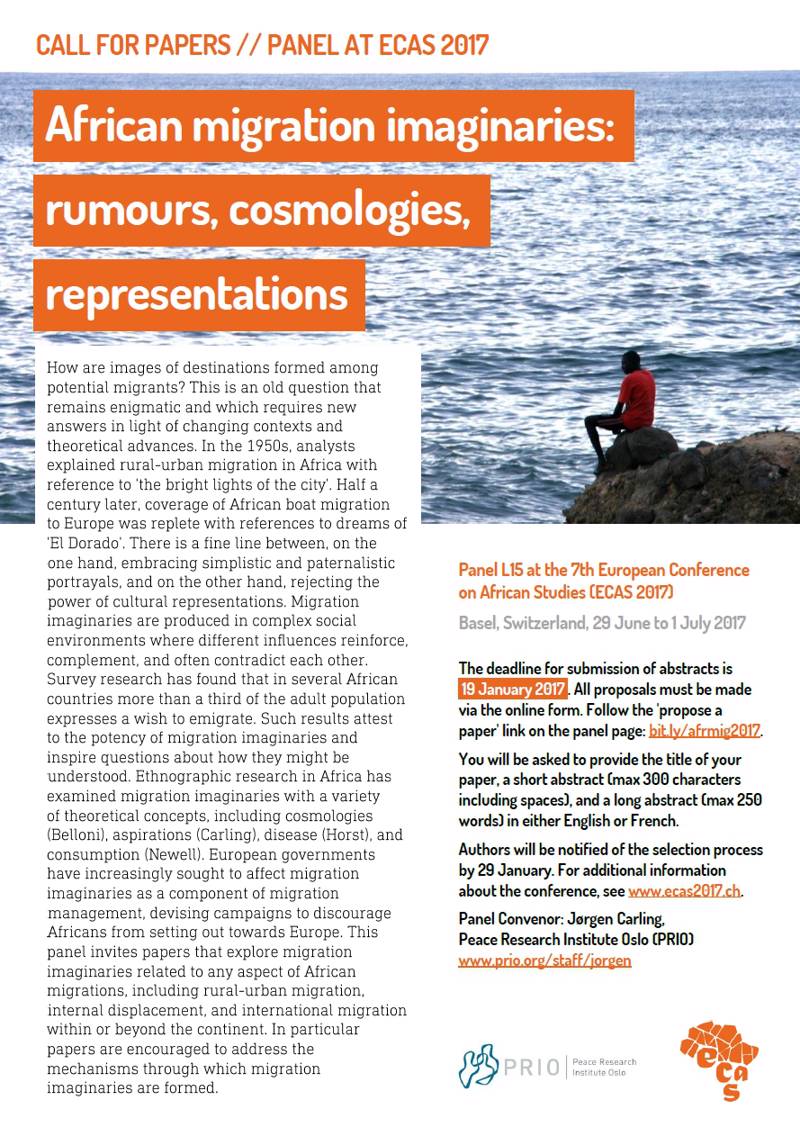
How are images of destinations formed among potential migrants? This question is at the core of diverse African migrations, including rural-urban migration and international migration within or beyond the continent. Papers in this panel explore how migration imaginaries are formed.
How are images of destinations formed among potential migrants? This is an old question that remains enigmatic and which requires new answers in light of changing contexts and theoretical advances. In the 1950s, analysts explained rural-urban migration in Africa with reference to 'the bright lights of the city'. Half a century later, coverage of African boat migration to Europe was replete with references to dreams of 'El Dorado'. There is a fine line between, on the one hand, embracing simplistic and paternalistic portrayals, and on the other hand, rejecting the power of cultural representations. Migration imaginaries are produced in complex social environments where different influences reinforce, complement, and often contradict each other. Survey research has found that in several African countries more than a third of the adult population expresses a wish to emigrate. Such results attest to the potency of migration imaginaries and inspire questions about how they might be understood. Ethnographic research in Africa has examined migration imaginaries with a variety of theoretical concepts, including cosmologies (Belloni), aspirations (Carling), disease (Horst), and consumption (Newell). European governments have increasingly sought to affect migration imaginaries as a component of migration management, devising campaigns to discourage Africans from setting out towards Europe. This panel invites papers that explore migration imaginaries related to any aspect of African migrations, including rural-urban migration, internal displacement, and international migration within or beyond the continent. In particular papers are encouraged to address the mechanisms through which migration imaginaries are formed. The deadline for submission of abstracts is 19 January 2017. All proposals must be made via the online form. Follow the 'propose a paper' link on the panel page: bit.ly/afrmig2017.
You will be asked to provide the title of your paper, a short abstract (max 300 characters including spaces), and a long abstract (max 250 words) in either English or French.
Authors will be notified of the selection process by 29 January. For additional information about the conference, see www.ecas2017.ch.
Panel Convenor: Jørgen Carling





